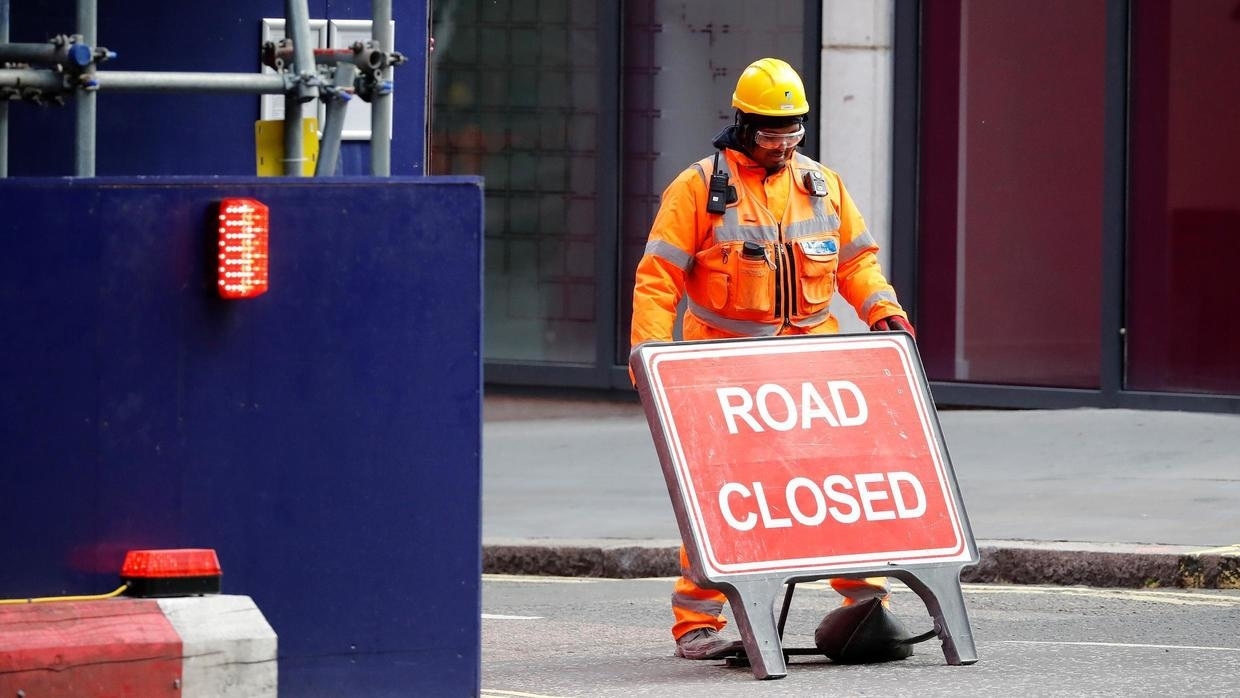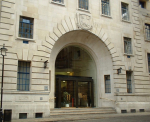
Britain's economy shrank two percent in the first three months of the year, rocked by the fallout from the coronavirus pandemic, and the figures pointed to even worse to come, official data
showed Wednesday.
Gross domestic product shrank in the first quarter compared with the prior three months in the largest slump since the global financial crisis in the fourth quarter of 2008, the Office for National Statistics said in a statement.
Economic output dived by a record 5.8 percent in March from the previous month, the ONS noted.
"And with the restrictions in place until mid-May and then only lifted very slightly, April will be far worse," Gregory added.
Britain implemented its COVID-19 lockdown -- which is only just starting to be slowly eased -- on March 23.
"This release captures the first direct effects of the coronavirus pandemic, and the government measures taken to reduce transmission of the virus," the ONS said.
- 'Widespread disruption' -
"There has been a widespread disruption to economic activity," it added.
The first-quarter performance was better than France and Italy, which shrank by 5.8 percent and 4.7 percent in the same period. Both nations were hit hard by the pandemic -- but they began lockdowns earlier than the UK.
The Bank of England (BoE) had already warned last week that the economic paralysis could lead to Britain's worst recession in centuries.
"With the arrival of the pandemic, nearly every aspect of the economy was hit in March, dragging growth to a record monthly fall," said Jonathan Athow, deputy national statistician for economic statistics at the ONS.
"Services and construction saw record declines on the month with education, car sales and restaurants all falling substantially," he said.
"Although very few industries saw growth, there were some that did, including IT support and the manufacture of pharmaceuticals, soaps and cleaning products.
"The pandemic also hit trade globally, with UK imports and exports falling over the last couple of months, including a notable drop in imports from China."
The BoE had forecast last week that UK output was likely to crash by 14 percent this year.
- Furlough extended -
As the nation's coronavirus crisis has deepened, finance minister Rishi Sunak has unveiled a series of massive packages to help those affected.
Notably, the government stepped in to back up employee wages in a so-called "furlough" jobs retention plan, while it also gave tax holidays to businesses and boosted welfare payments.
Sunak on Tuesday announced a four-month extension to the furlough scheme, which will now run until the end of October.
The government says 7.5 million jobs have already been supported by the plan, which ensures employees can receive 80 percent of their pay up to £2,500 ($3,100, 2,800 euros) a month.
The BoE has also been at the forefront of economic firefighting in response to the COVID-19 outbreak, slashing its main interest rate to 0.1 percent and pumping £200 billion ($244 billion, 226 billion euros) into the UK economy to get retail banks lending.
Britain has seen more than 32,000 deaths in the outbreak -- the worst in Europe and second only to the United States -- although there are indications that the true toll is higher.
Prime Minister Boris Johnson's Conservative government meanwhile began this week to relax some of lockdown measures in order to help the economy but he has also stressed that great caution is needed and that the easing could be reversed if cases start rising again.AFP


































